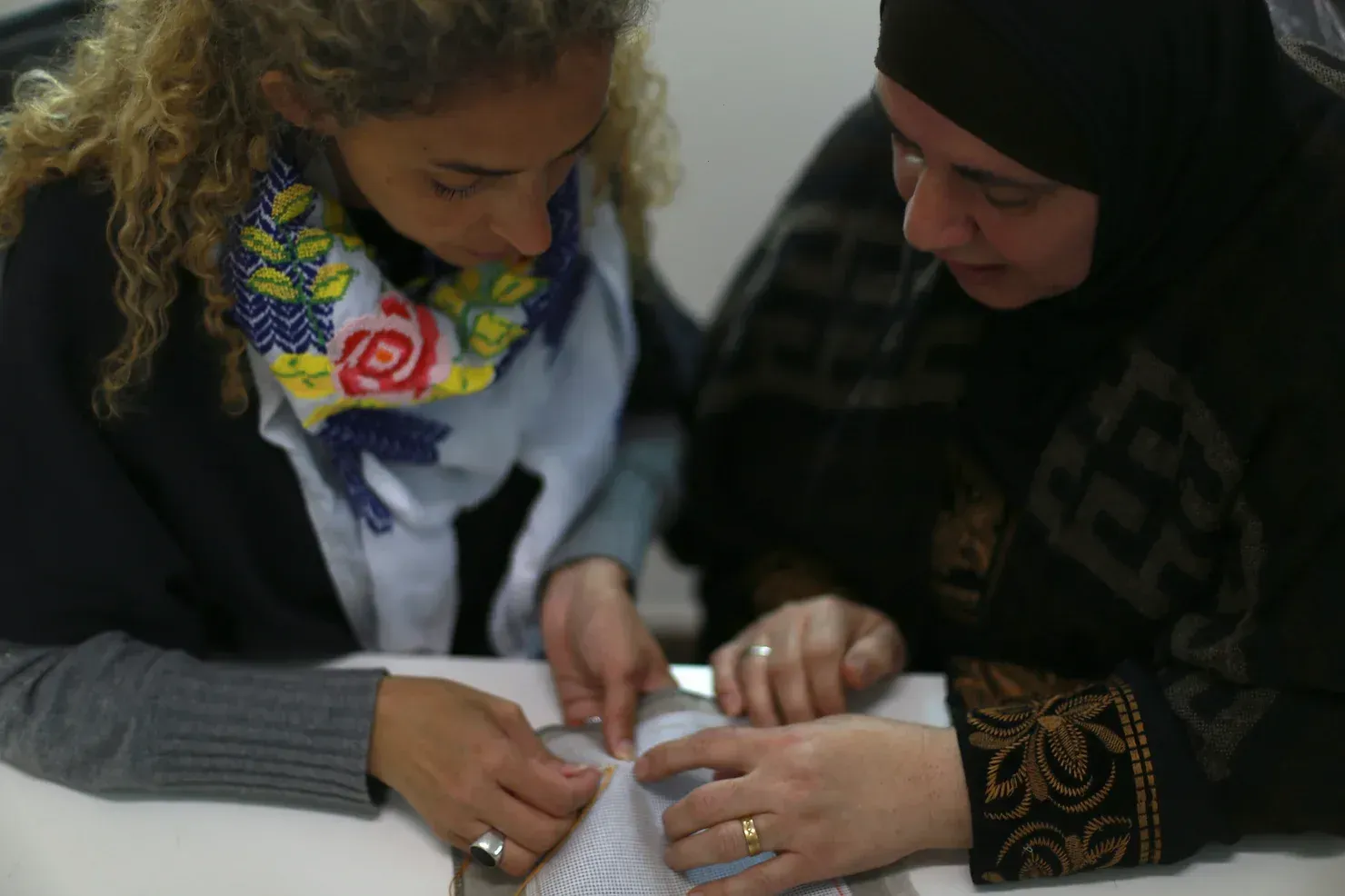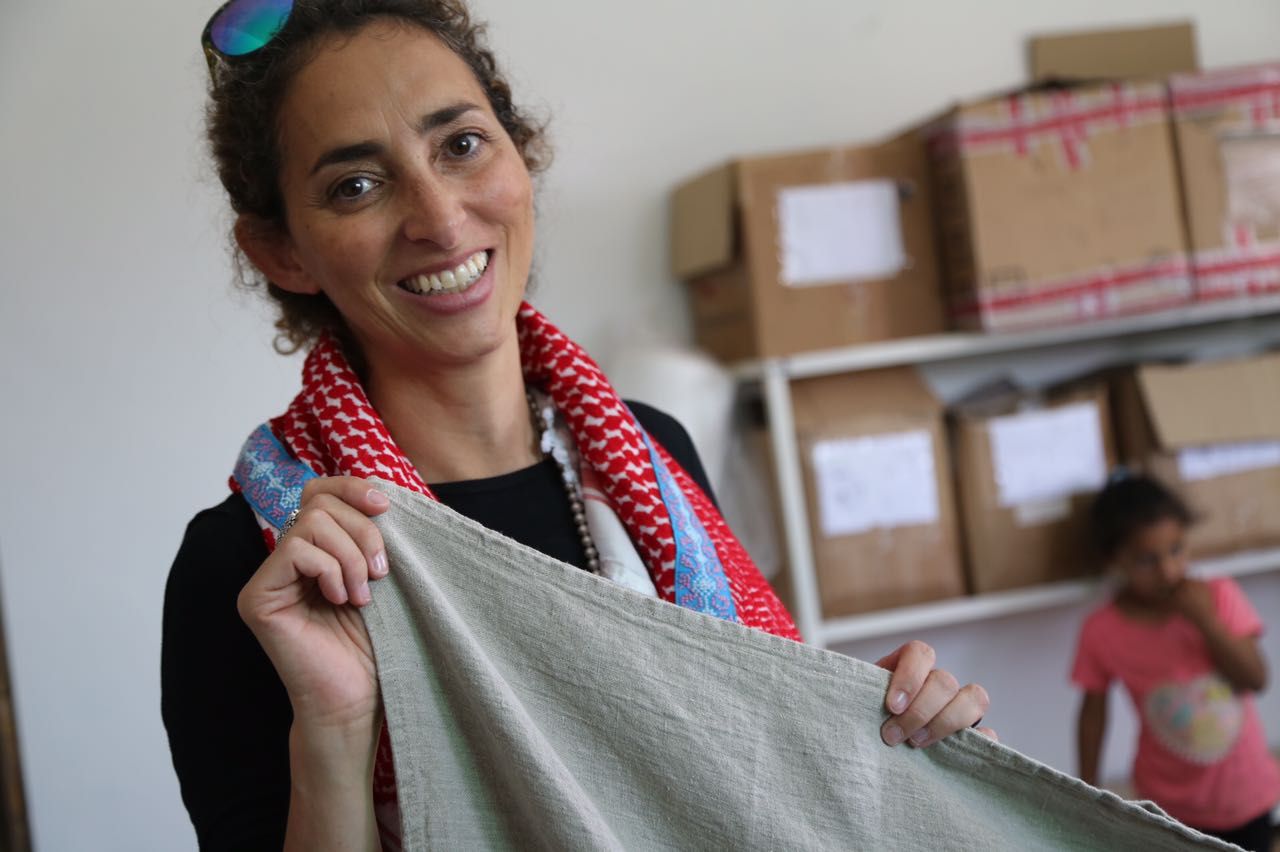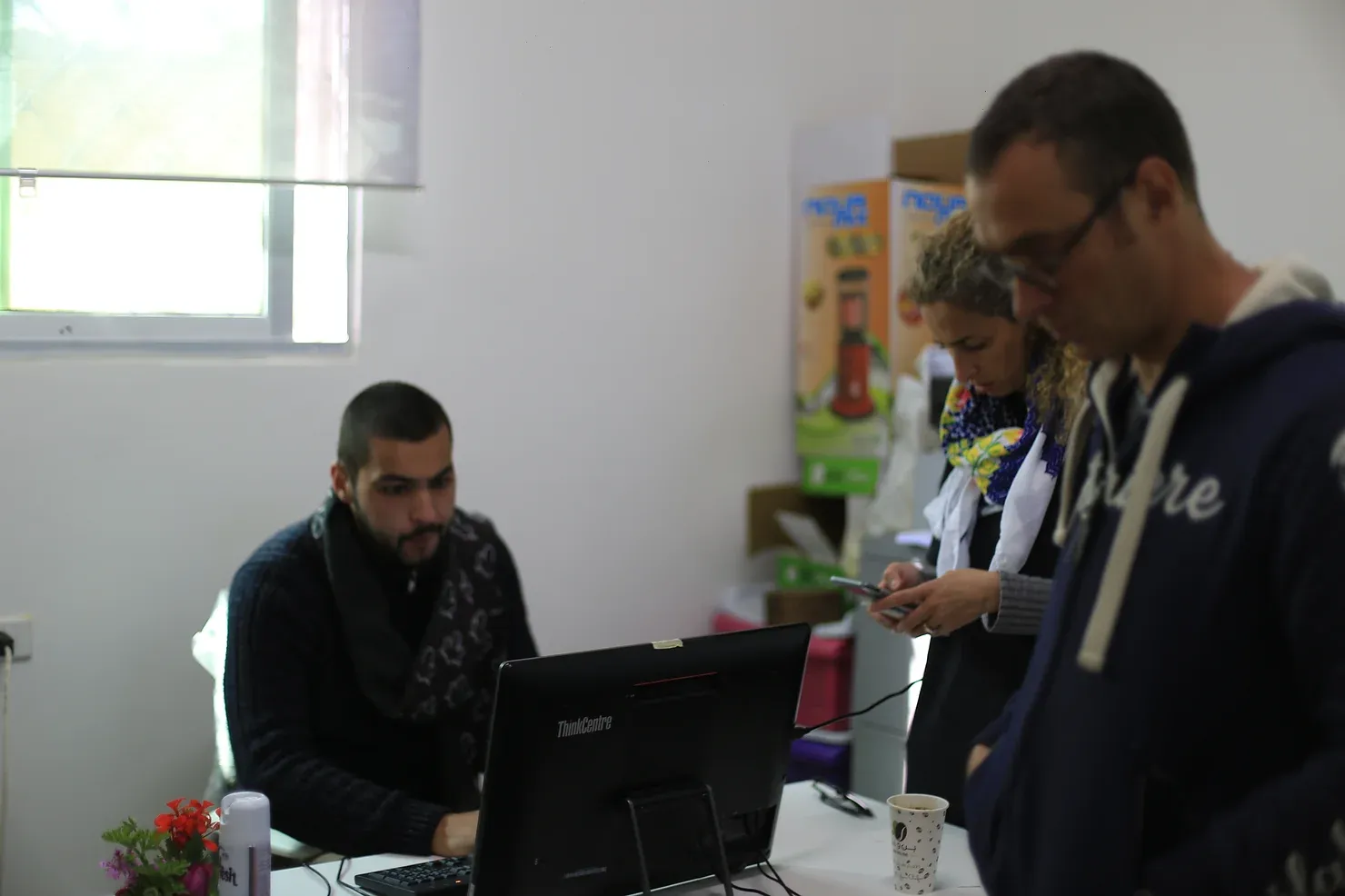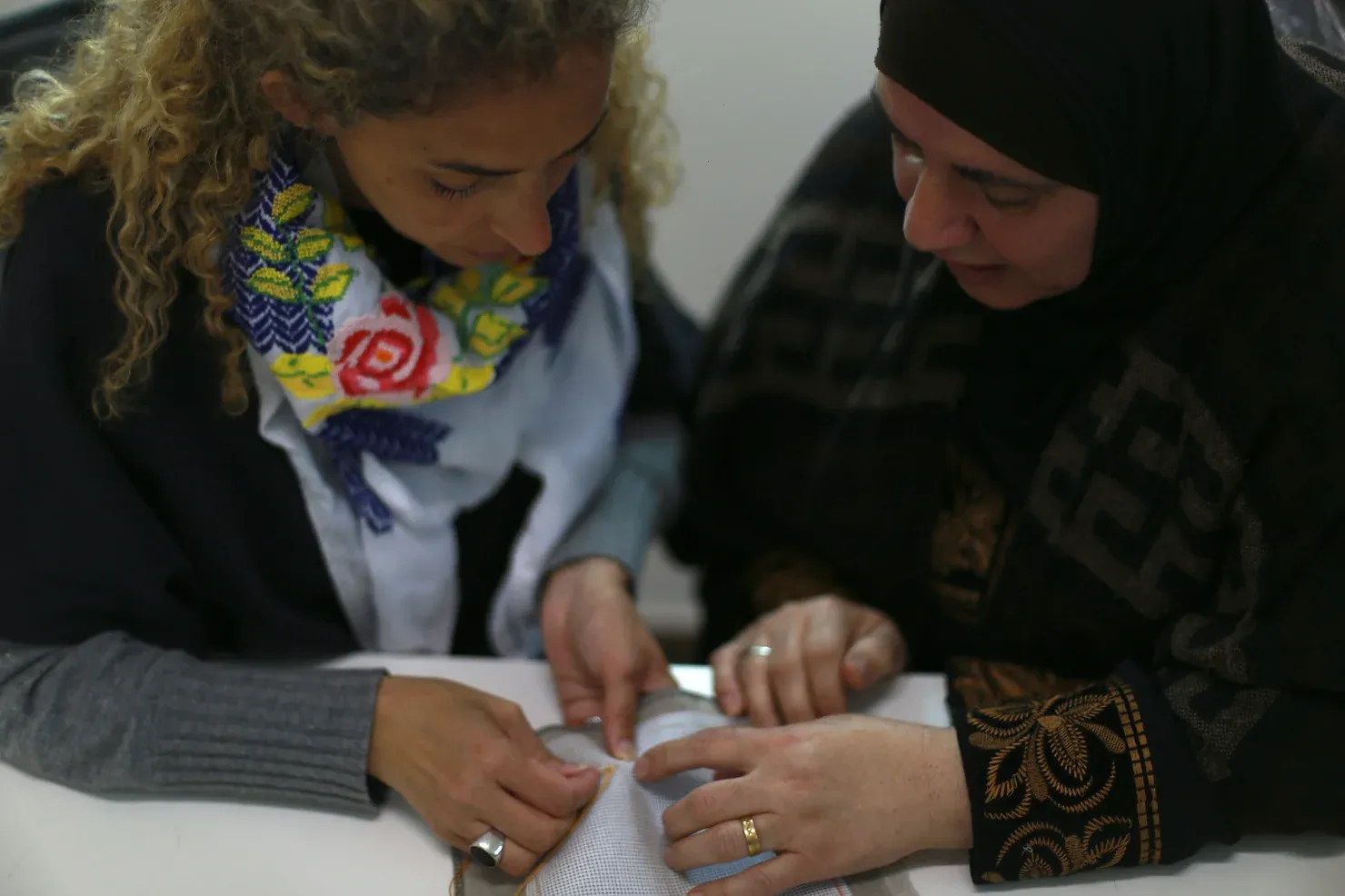
Empowered embroiderers
"Lifting millions and millions of refugees out of poverty through work and empowering them is my dream."
How SEP Jordan's Roberta Ventura is helping change the aid paradigm
Roberta Ventura's words are as forceful as her convictions. "Storing refugees away in camps as if they were groceries in a warehouse is completely unacceptable. We must turn refugees into ‘former refugees’ by turning them into ‘economic agents', and that's what we have been doing at SEP Jordan for a few years now." The fortysomething Italian-born entrepreneur operates globally out of a tiny shop in Carouge with her husband Stefano as her business partner. “I would probably have collapsed without him,” she says. SEP Jordan (SEP stands for social enterprise project) sells fashion accessories created by Palestinian embroiderers using century-old techniques and patterns designed with Italian style. As its founder, Ventura is one of the most unsparing critics of the current aid and relief system, which she deems irremediably broken, flawed at its very core, and "demeaning" in nature because of its continued adherence to the donor's model. With SEP Jordan, she has managed to develop an alternative that is starting to have a very significant impact in the Jordanian camp of Jerash and appears to be indefinitely scalable.



Roberta Ventura at the Jordanian of Jerash
True entrepreneurship, particularly when concerned with social impact and sustainability, has a strong holistic component incorporating the values, visions, and experiences of the company's founder with the objective of changing the world. Not unlike SEP Jordan's beautifully embroidered accessories, Ventura's project weaves together an unlimited number of threads from her personal life and experiences that have coalesced into her venture. The mystery of one's ability to develop a life-long passion at an early age is one: "I grew up in Cuneo and became fascinated by the Arabic language. I couldn't tell you why it was not in our family DNA!" An openness to the world is another one. Her commitment to social justice and human rights was inspired by the liberation of Nelson Mandela and the image of him walking out of jail after 27 years on the bright morning of February 11, 1990.
"I am looking at the refugee situation in the Middle East, and it keeps deteriorating despite the massive amounts of aid poured into the region for over 70 years. It is just not working."
She obtains a B.A at Bocconi, Milan's prestigious economics university, focusing on private and public partnerships in the reconstruction following the civil war. Her first job took her to London, where she worked in finance at hedge funds. "I am financially secure. I donate to charities. Yet, all the while, I am looking at the refugee situation in the Middle East, and it keeps deteriorating despite the massive amounts of aid poured into the region for over 70 years. It is just not working." Ventura recalls the moment the idea of SEP Jordan came to her: when she met a young boy whose education she was funding through her donations. "He told me that he was, of course, extremely grateful, but surprisingly for me at the time, he confessed my help might make it more depressing for him as he would go from being a refugee to becoming an educated jobless refugee." The idea of turning refugees into "economic agents" was born from that conversation. Ventura describes it as "a calling". SEP started with the simple idea of fusing the Middle Eastern artistry of the cross-stitch technique with Italian flair.
"SEP's mission statement is very simple: it is to bring thousands of refugees above the poverty line. Make sure that they can monetize their talent, their skills, and their work. Not by donating money, but by empowering them."
It started in 2013 with 20 embroiderers. "For the first couple of years, I bankrolled the company by digging into my savings," she says. Today, she works with a network of about 500 artists, Palestinians, and Syrians. "SEP's mission statement is very simple," she tells me, "it is to bring thousands of refugees above the poverty line. Make sure that they can monetize their talent, their skills, and their work. Not by donating money but by empowering them. Not all of them are above the line yet, but their number is steadily growing."
As I press Ventura—the Arabic-loving, human rights defender/former hedge fund partner/supreme fashionista—for another list of KPIs from her Excel sheet, she offers me the one she feels most proud about: "We have significantly reduced the rate of clinical depression among our embroiderers. Clinical depression ravages refugee populations. Survey after survey conducted locally has shown a decrease."
What makes Ventura's critique of the aid system particularly worth hearing is that she has proven that alternatives exist. She is acutely aware of how complex the issue is, beginning with the UNHCR 1951 convention that has no economic component. "It is its most significant blind spot. It was a breakthrough when it was written. Today, it has neared obsolescence. We need to amend it. Everybody knows the system is not working. I know countless of people in the field and at headquarters that tell the same story, we all know the internal discussions, the fights even, on how to reform the system. Part of the problem is that people are afraid that if we change the system while there are no long-term alternatives to the current one, it might get worse. I completely understand. They are smart people. There are plenty of good people in the agencies, doing an awesome job. But you will always find a bureaucrat in your way, telling you every time you try to push the envelope in the field that it is not our mandate, that it can't be done. Telling you that their hands are tied."
"Lifting millions and millions of refugees out of poverty through work and empowering them is my dream. That's where I want to take SEP Jordan."
SEP Jordan is Roberta Ventura's life. Some entrepreneurs are merely driven. She is compelled and obsessive about SEP, for it is the result of the constant colliding of her beliefs and values, of her skills, and experiences. The relief system she has lost faith and hope in is desperately stuck. Her adventure is an agile journey. "Lifting millions and millions of refugees out of poverty through work and empowering them is my dream. That's where I want to take SEP Jordan."
-PHM
